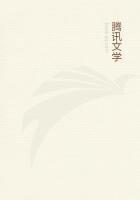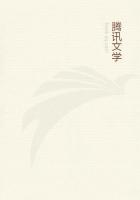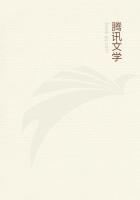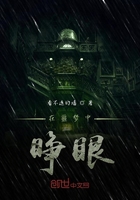Intact remained the virtue of Blanche, and by the quintessence of instruction drawn by her from the natural reservoir of women, she recognised how necessary it was to be silent concerning the venial sin with which her child was covered. So she became modest and good, and was cited as a virtuous person. And then to make use of him she experimented on the goodness of her good man, and without giving him leave to go further than her chin, since she looked upon herself as belonging to Rene, Blanche, in return for the flowers of age which Bruyn offered her, coddled him, smiled upon him, kept him merry, and fondled him with pretty ways and tricks, which good wives bestow upon the husbands they deceive; and all so well, that the seneschal did not wish to die, squatted comfortably in his chair, and the more he lived the more he became partial to life. But to be brief, one night he died without knowing where he was going, for he said to Blanche, "Ho! ho!
My dear, I see thee no longer! Is it night?"
It was the death of the just, and he had well merited it as a reward for his labours in the Holy Land.
Blanche held for his death a great and true mourning, weeping for him as one weeps for one's father. She remained melancholy, without wishing to lend her ear to the music of a second wedding, for which she was praised by all good people, who knew not that she had a husband in her heart, a life in hope; but she was the greater part of her time a widow in fact and widow in heart, because hearing no news of her lover at the Crusades, the poor Countess reputed him dead, and during certain nights seeing him wounded and lying at full length, she would wake up in tears. She lived thus for fourteen years in the remembrance of one day of happiness. Finally, one day when she had with her certain ladies of Touraine, and they were talking together after dinner, behold her little boy, who was at that time about thirteen and a half, and resembled Rene more than it is allowable for a child to resemble his father, and had nothing of the Sire Bruyn about him but his name--behold the little one, a madcap and pretty like his mother, who came in from the garden, running, perspiring, panting, jumping, scattering all things in his way, after the uses and customs of infancy, and who ran straight to his well-beloved mother, jumping into her lap, and interrupting the conversation, cried out--"Oh, mother I want to speak to you, I have seen in the courtyard a pilgrim, who squeezed me very tight."
"Ah!" cried the chatelaine, hurrying towards one of the servants who had charge of the young count and watched over his precious days, "I have forbidden you ever to leave my son in the hands of strangers, not even in those of the holiest man in the world. You quit my service."
"Alas! my lady," replied the old equerry, quite overcome, "this one wished him no harm for he wept while kissing him passionately."
"He wept?" said she; "ah! it's the father."
Having said which, she leaned her head of upon the chair in which she was sitting, and which you may be sure was the chair in which she has sinned.
Hearing these strange words the ladies was so surprised that at first they did not perceive that the seneschal's widow was dead, without its ever been known if her sudden death was caused by her sorrow at the departure of her lover, who, faithful to his vow, did not wish to see her, or from great joy at his return and the hope of getting the interdict removed which the Abbot of Marmoustiers had placed upon their loves. And there was a great mourning for her, for the Sire de Jallanges lost his spirits when he saw his lady laid in the ground, and became a monk of Marmoustiers, which at that time was called by some Maimoustier, as much as to say Maius Monasterium, the largest monastery, and it was indeed the finest in all France.















